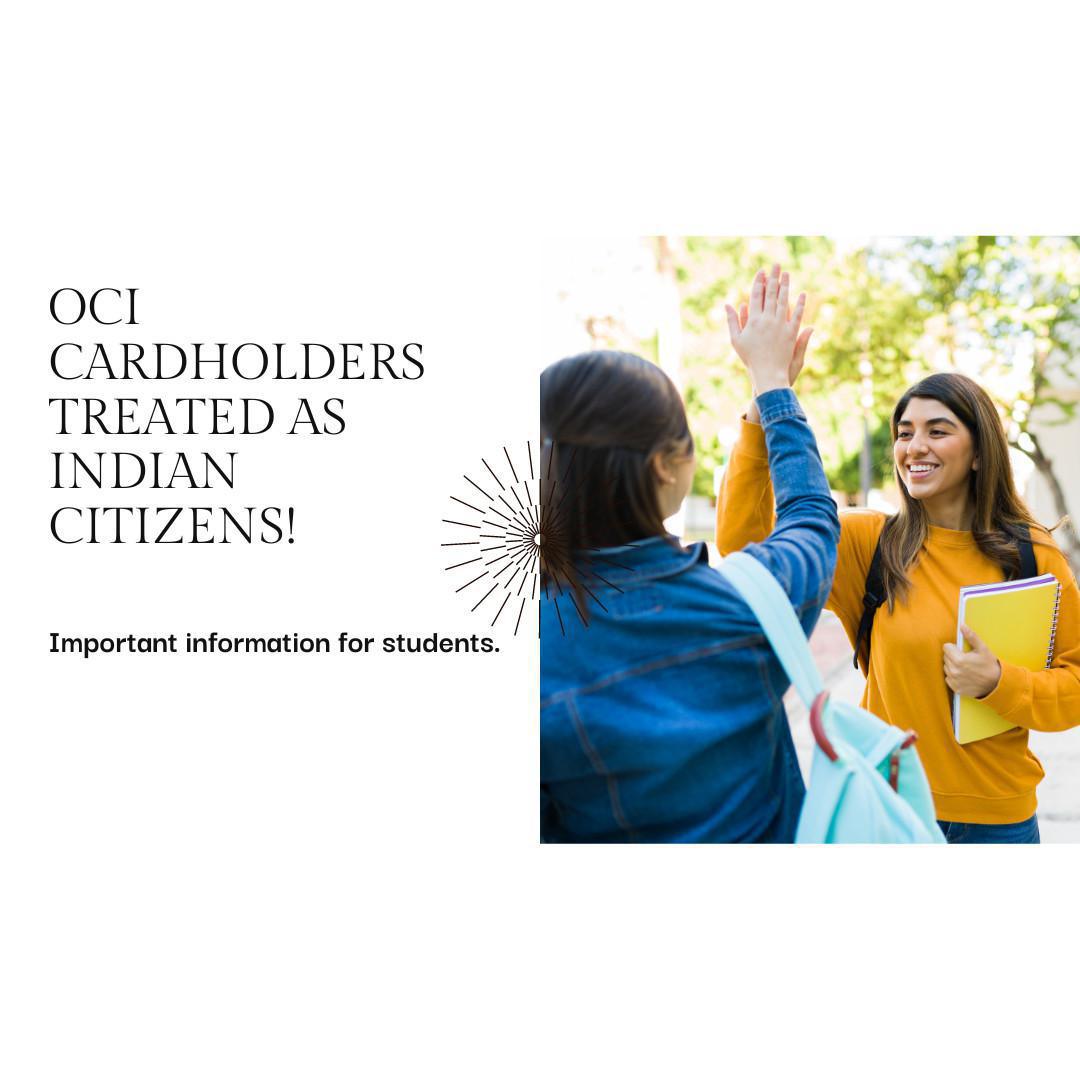In a landmark decision by the Karnataka government, Overseas Citizens of India (OCI) cardholders are now on equal footing with Indian citizens for undergraduate admissions. This pivotal announcement came during a hearing at the High Court of Karnataka, setting a precedent for the academic year 2024-25.
What Happened?
-
OCI cardholder Abhidyu Gowda Chandrashekar filed the case and is questioning a part of the announcement from January 9, 2024. This announcement was made by the Karnataka Examination Authority for the 2024 Common Entrance Test, which is a test for getting into different professional courses. It said that whether OCI (Overseas Citizen of India) candidates can get government seats depends on what the government decides.
- This clause put OCI/PIO candidates' eligibility for government seats in question, a move contested as contrary to previous High Court and Supreme Court decisions.
- The Supreme Court's stance was highlighted, referencing a 2023 judgment that differentiated OCI admissions based on the date of birth relative to a 2021 notification.
The Court's Ruling:
The Karnataka High Court, led by Justice Anu Sivaraman and Justice Anant Ramanth Hegde, acknowledged the State's position that OCI students should be treated equally in the admission process. This includes:
- Eligibility for both government and private quota seats in medical, dental, and engineering courses.
- An interim relief was also granted, especially to a UK-born petitioner, for equal treatment in admission counseling.
Key Points from the Verdict:
- OCI cardholders born before March 4, 2021, are exempt from the rule limiting admission to the NRI quota.
- This ruling applies to the academic year 2024-25, covering both government and private seats.
- The High Court highlighted previous orders and judgments affirming OCI rights, including the right to participate in All-India Pre-Medical Tests on par with Indian nationals.
This significant ruling marks a victory for OCI cardholders seeking equal opportunities in India’s educational landscape. It underscores a progressive step towards inclusivity and fairness in academic admissions, aligning with previous legal standings and ensuring OCI students have the same access to educational resources as Indian citizens.


